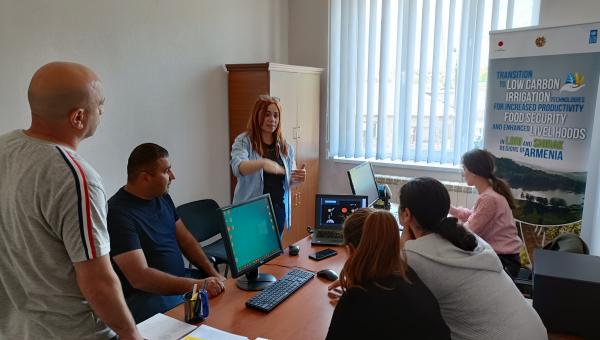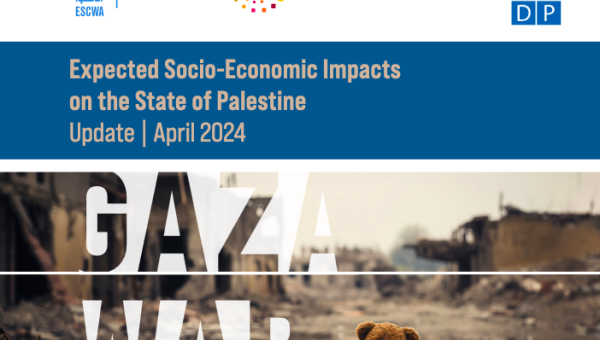Accelerating Disability Rights in Cambodia - ADRC
Background
The Cambodia Demographic and Health Survey 2021-2022 (CDHS) found that 21 percent of household members aged five or above have some level of difficulty in at least one functional domain, and four percent have severe difficulty or cannot function at all in at least one domain. In 2021, the United Nations Partnership on the Rights of Persons with Disabilities (UNPRPD) joint programme conducted a situational analysis of persons with disabilities and found that persons with disabilities in Cambodia face several barriers, including poverty and unsustainable livelihoods; stigma and discrimination; limited access to services, information, justice and education; and inaccessibility of physical infrastructure, etc[1]. Further challenges include effectively mainstreaming disabilities into broader policies and plans as well as implementing legislative and policy frameworks at the provincial and local levels.
To address the challenges faced by persons with disabilities and ensure no one is left behind, an Accelerating Disability Rights in Cambodia (ADRC) project has been established. ADRC is a joint initiative between the UNDP, the United Nations Educational, Scientific and Cultural Organization (UNESCO), and the UN Human Rights Office (UN OHCHR), with technical support from the International Labour Organization (ILO) to promote the rights of persons with disabilities in partnership with the Royal Government of Cambodia, the Cambodian Disabled People’s Organization (CDPO), Organizations of Persons with Disabilities (OPDs), and Women and Children with Disabilities Forum Organizations (WWDFs).
The project features a three-pronged approach aimed at enhancing the rights of persons with disabilities in Cambodia. On a systemic level, the project will support inclusive processes of consultating, drafting, enacting and implementating the new rights-based Disability Law. The new law constitutes a structural change that will provide a foundation for building a more rights-based society inclusive of disabled persons in Cambodia.
Expected Outcomes
The joint program will be achieved through the following specific outcomes:
Outcome 1. The capacity of national stakeholders, especially of key duty bearers and rights holders, is enhanced to ensure more effective contributions towards disability-inclusion policies and systems. This will also aid with the implementation of initiatives adhering to the Convention on the Rights of Persons with Disabilities (CRPD) and the Sustainable Development Goals (SDGs).
Outcome 2. Gaps in the achievement of essential building blocks or preconditions to CRPD implementation in development and humanitarian programs are addressed.
Outcome 3. National development and humanitarian plans, budgets, programs and monitoring processes are inclusive of disabled persons.
Expected Outputs
Output 1.1. Enhanced capacity of multistakeholders at the national and sub-national level in charge of disability mechanisms (Disability Action Council, Provincial Disability Action Council and Disability Action Working Group at line ministries) to support implementation and monitoring of disability-inclusion policies (social protection), laws (Disability Law, Law on Access to Information) and plans (National Disability Strategic Plan 2 [NDSP2]).
Output 1.2. Enhanced capacity for stakeholders in the disability movement, including women with disabilities, highly vulnerable groups (deaf persons, blind persons and persons with psychosocial disabilities). This will help them effectively engage in the development, implementation and monitoring of CRPD and inclusive SDG processes. Specifically, they will improve their capacity for meaningful engagement and advocacy with national and subnational stakeholders, including government and service providers, in areas of inclusive social protection, access to justice, meaningful representation (for persons with hearing impairment) and economic empowerment (for women with disabilities).
Output 2.1. Drafting of the new Disability Law and required sub-legislation aligned with the CRPD and with the full participation of OPDs (from consultation to the submission to the Council of Ministers).
Output 2.2. The new Disability Law has a clear implementation plan with clear roles and is effectively disseminated to both national and subnational levels via communication campaigns shared throughout the country.
Output 2.3. Full participation of OPDs in the process of revising the National Disability Strategic Plan to be aligned with the CRPD and the new Disability Law is ensured once the law is approved. (NDSP2 extension or new NDSP3 - whichever option is chosen by the Government)
Output 2.4. The Disability Action Council (as a mechanism formally in charge of monitoring the United Nations CRPD) has a clear mandate and approved plans to monitor the National Disability Strategic Plan and the New Disability Law with full participation of OPDs.
Output 3.1. Effective implementation of an inclusive COVID-19 recovery plan through national monitoring system is ensured.
Output 3.2. Full participation of OPDs in processes of implementing and monitoring inclusive COVID-19 recovery plans is ensured.
Achievements to date
Significant progress has been made by the ADCR project, a joint initiative between the Royal Government of Cambodia through the DAC (Disability Acton Council), OPDs and the UNDP to promote an inclusive SDG agenda that ensures no one is left behind. The project has successfully reached several noteworthy milestones, including:
The DAC-SG established a Monitoring, Evaluation, and Learning (MEL) unit to oversee the progress of the National Disability Strategic Plan 2019–2023 (NDSP2).
A web-based system was created for data and information collection from line ministries and provincial DACs regarding the implementation and progress of NDSP2.
With technical support from the UNDP, DAC-SG formulated the NDSP 2024-2028 (NDSP3) with valuable input from stakeholders such as OPDs and line ministries. The Royal Government of Cambodia is set to approve the NDSP3 for implementation by mid-2024.
A draft of a new disability law has been formulated by the DAC-SG, with technical support from the UNDP and the UNOHCHR. The law will be submitted to the Council of Ministers by the DAC in mid-2024.
Five deaf groups have been established in Kampong Cham and Tbong Khmum provinces, totaling 56 members, including 29 women. These groups underwent training in Cambodian sign language, successful communication, and peer support. This training enhanced their ability to interact, express their views, and connect with others in the community.
One OPD and five WWDFs improved their skills in advocating for services, ultimately benefiting 1,681 persons with disabilities, including 992 women and girls who received a range of services.
One OPD and five WWDFs championed advocating for six women with disabilities to become members of the Women and Children Affairs Committees of six communes/sangkats in Kampong Cham, Battambang, Kampong Speu, Kampot, Takeo, and Svay Rieng. Additionally, they successfully pushed for the integration of disability-related activities in commune investment plans for 2024.

 Locations
Locations



